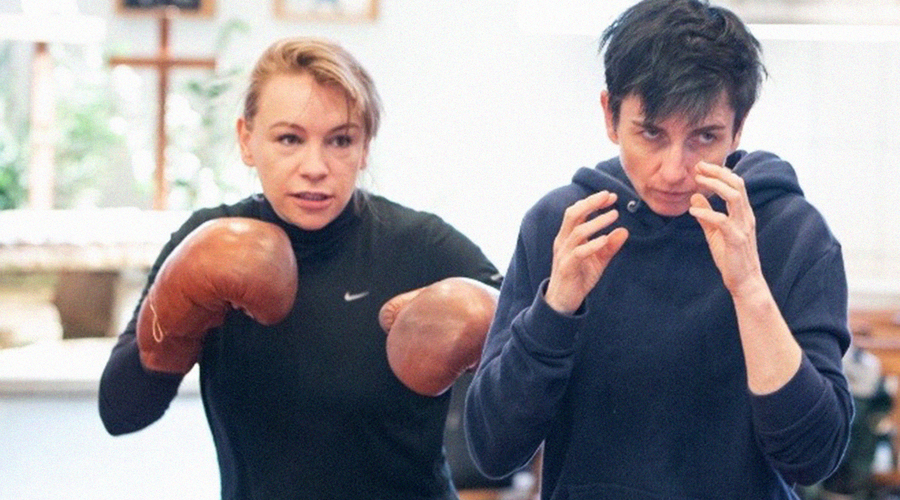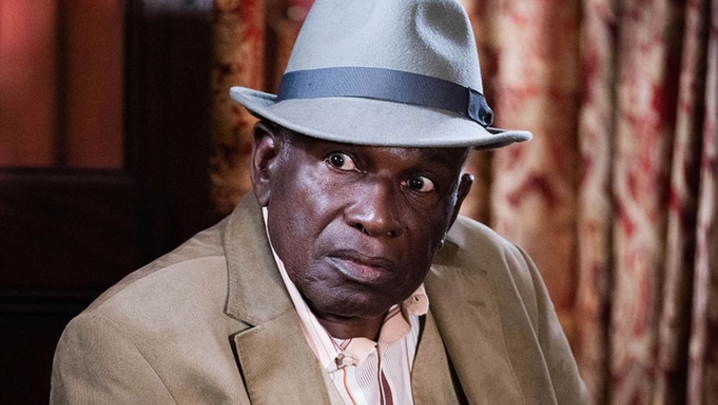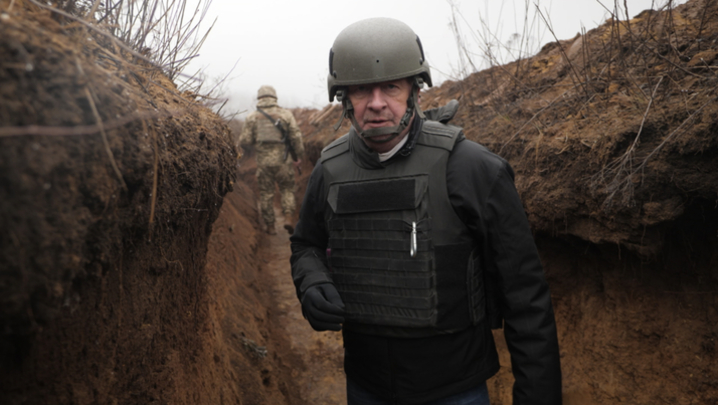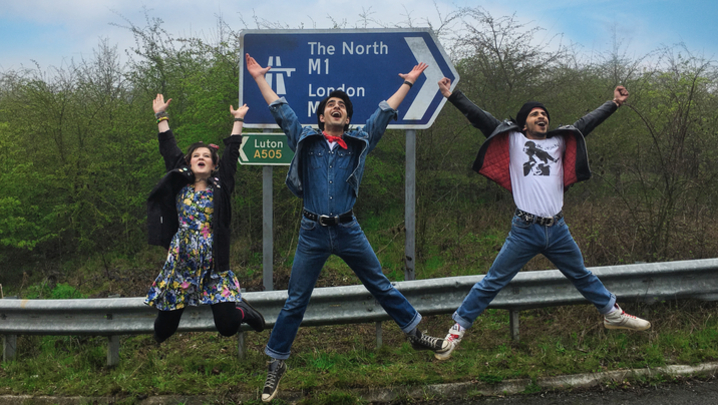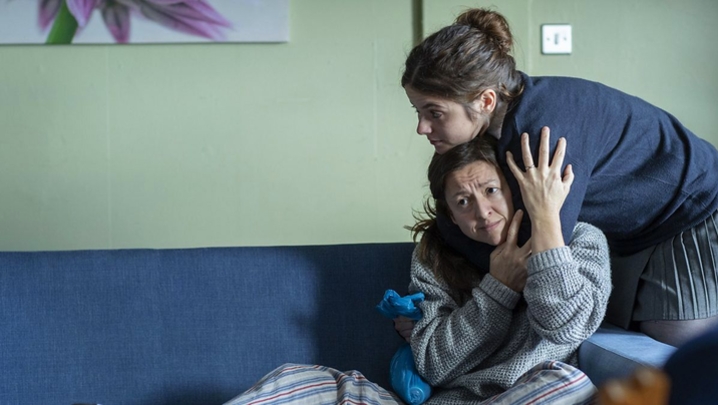Kate Waters has worked on Coronation Street for the past decade, choreographing the conflicts that are such a staple of the ITV soap. Recently, she directed the fight scenes in the National Theatre’s triumphant film Romeo & Juliet for Sky Arts.
What does the job involve?
I choreograph the physical action in the story, whether it’s with swords, a punch up or just a slap, ensuring that the motivation for the action lies in the story and the characters. It’s not about being fancy or funky: it’s about making the action the vehicle for the story, not the other way around.
So you must work closely with the director?
It’s a collaborative process: the director has a vision for the programme, as do I for the action sequences. We’re on set together and there’s a discussion among the director, the actors and me.
How do you deal with the huge variation in actors’ physical abilities?
A lot of my job is about adaptability and compromise – you’re always looking to get the best out of an actor, but you have to work to their strengths and within their capabilities.
You don’t expect actors to have great skills in fight scenes – they might have done a bit of swordplay at drama school but they’ve probably never picked up a sword since.
The secret is to make them feel good about what they’re doing – 90% is psychology, getting the actors in a good place and winning trust; the rest is choreography.
Is realism the key to a fight scene?
Violence needs to come from a place of truth – if you take a hit in the face, you don’t want another one.
So are the actors at risk?
I use soft implements for actors to hit each other with. A chair, for example, could be made from balsa wood so it breaks easily. Actors are hit on the top of the back and wear protection, never on the back of the head. Everything is choreographed to minimise the risk.
How did you become a fight director?
I always wanted to be an actor – I acted at school and took dance classes but, following my dad and brother, I took up judo and competed at a reasonable level. I went to Middlesex University to study acting; stage combat was on the timetable and I felt I had found myself.
I qualified as a stage combat teacher and, when I left drama school, I went to teach at the Royal Welsh College of Music & Drama, and then to work with the fight director and teacher Jonathan Howell, at the Bristol Old Vic Theatre School. He was my mentor and gave his time selflessly, helping me get all the qualifications I needed to get on the Equity register of fight directors.
Was that difficult?
When I did it, you needed a brown or black belt in a martial art, fencing qualifications and an advanced certificate in stage combat, and then you went on an assessment course where fight directors set tests. You don’t have to be on the Equity register to work in the theatre and TV, but I believe in regulation.
Are there many women fight directors?
Twenty years ago, the Equity register was a bit of an old gentleman’s club, and even now there are still only three women on the register. It needs to evolve and be less patriarchal.
Is physical strength an issue?
No, I’ve never needed my judo black belt – choreography and storytelling are the most important skills. My other sport is boxing – I’ve retired from competitive boxing but I’m still training and coaching – but you don’t need to be an Olympic boxer to choreograph a fight with actors who almost certainly won’t have that skill.
What was your first professional job?
Coriolanus at the Tobacco Factory in Bristol, and I’ve continued to work on stage for, among others, the RSC, Globe and National Theatre.
What was your first TV programme?
Coronation Street – choreographing a punch in the Rovers Return. It was difficult to break into TV. I got work on Corrie because a theatre director was directing a block of episodes on the show and gave me a break. I’ve since worked for other soaps, such as Emmerdale and Hollyoaks.
Do you have a favourite memory?
I worked on the Coronation Street live episode in 2015. The first 15 minutes were crazy and nerve-wracking because one of the characters, drug dealer Callum Logan [Sean Ward], was killed – it was really quite violent, but brilliant to work on.
Has it been hard working under Covid-19 restrictions?
We have to wear masks and can’t come any closer than two metres from the actors on Corrie. It’s unnatural demonstrating techniques from a distance, but we’re making it work.
What makes a good fight director?
You need to leave your ego at the door and serve the story. You also need physical and mental stamina. One day I could be at the National Theatre, the next on the Coronation Street or Emmerdale set. In TV, you’re usually on set for just a day – you have a read-through with the actors, a rehearsal, a camera rehearsal and then a take.
What’s the most exciting fight sequence you’ve pulled off?
I directed Kylie Platt’s death on Coronation Street, and I was also her stunt double because the actor [Paula Lane] was heavily pregnant – one moment I was choreographing the scene and then I had to go to costume and dress for the part.
What do you bring to work with you?
Snacks – I’m always hungry – the script, my knee pads and a big bag of padding for the actors.
What are the best and worst parts of the job?
I’ll never fall out of love with creating action sequences – telling the story, and collaborating with directors and actors. The worst part? You can feel on the outside of a production as a fight director, although, on a show that you’ve worked on for a long time, such as Corrie, it’s not a problem.
Are there any tricks of the trade you can share with us?
Distract the audience – take their eyes somewhere else and then you can take them by surprise with a piece of action.
What advice would you give to someone wanting to become a fight director?
It has to be a vocation, not a sideline to an acting career. Shadow people and learn from watching them work. Then it is up to you – it takes practice and passion to choreograph a perfect fight.
What TV series would you love to work on?
I have just finished a few days shooting on a film for Amazon and I’m about to shoot Death of England: Delroy, the next National Theatre film.
Although Killing Eve is perhaps more stylised it still comes from a place of truth. I would also have loved to work on Steve McQueen’s Small Axe, or something like Russell T Davies’s It’s a Sin. I just love good storytelling.
Kate Waters was interviewed by Matthew Bell. The fight director is represented by Casarotto Ramsay.

